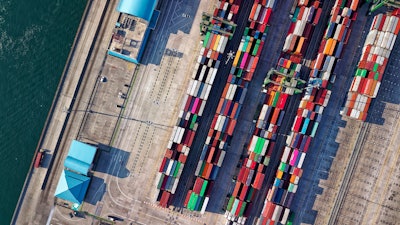
Imports at major U.S. retail container ports are expected to see double-digit year-over-year declines this spring and summer as the economic effects of the coronavirus pandemic continue, according to the Global Port Tracker report released today by the National Retail Federation and Hackett Associates.
“Factories in China are largely back online and stores that closed here in the U.S. are starting to reopen, but volume is far lower than what we would see in a ‘normal’ year,” NRF Vice President for Supply Chain and Customs Policy Jonathan Gold said. “Shoppers will come back and there is still a need for essential items, but the economic recovery will be gradual and retailers will adjust the amount of merchandise they import to meet demand.”
“Much will depend on consumers’ willingness to return to spending,” Hackett Associates Founder Ben Hackett said. “Our view is that second-quarter economic growth will be significantly worse than the previous quarter, but we continue to expect recovery to come in the second half of the year, especially the fourth quarter and into 2021. This is based on the big and somewhat tenuous assumption that there is no second wave of the virus.”
U.S. ports covered by Global Port Tracker handled 1.37 million Twenty-Foot Equivalent Units in March, the latest month for which after-the-fact numbers are available. That was the lowest volume since 1.34 million TEU in March 2016, down 9.1 percent from this February and down 14.8 percent year-over-year. A TEU is one 20-foot-long cargo container or its equivalent. April was estimated at 1.51 million TEU, down 13.4 percent year-over-year. May is forecast at 1.47 million TEU, down 20.4 percent from last year; June at 1.46 million TEU, down 18.6 percent; July at 1.58 million TEU, down 19.3 percent; August at 1.73 million TEU, down 12 percent, and September at 1.7 million TEU, down 9.3 percent. Before the coronavirus began to have an effect on imports, February through May had been forecast at a total of 6.9 million TEU but is now expected to total 5.87 million TEU, a drop of 14.9 percent.
The first half of 2020 is forecast to total 9.15 million TEU, down 13 percent from the same period last year. Before the extent of the pandemic was known, the first half of the year was forecast at 10.47 million TEU. Imports during 2019 totaled 21.6 million TEU, a 0.8 percent decrease from 2018 amid the trade war with China but still the second-highest year on record.

















